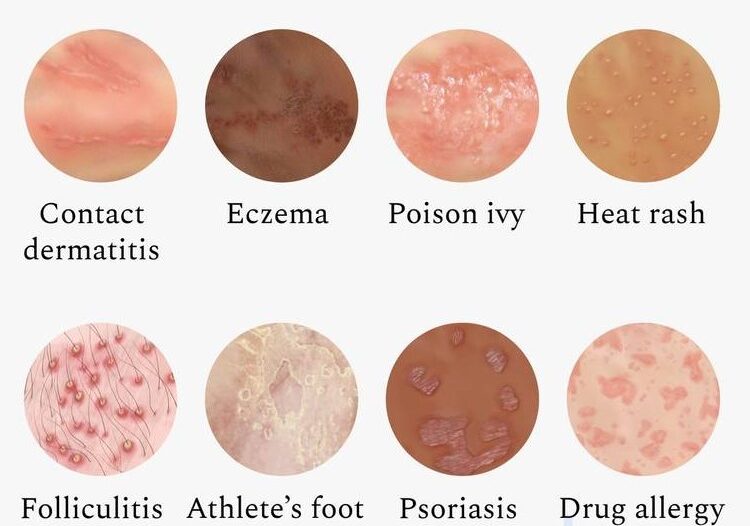
Skin allergies are a common concern that affects people of all ages and can cause discomfort, irritation, and even embarrassment. Identifying the triggers and understanding how to treat them is crucial in managing these conditions effectively. In this blog post, we will explore how to identify and treat common skin allergies, empowering you to take control of your skin health. As a trusted dermatology clinic, we are here to provide you with valuable insights and expert guidance.
- Understanding Skin Allergies:
Skin allergies occur when the immune system overreacts to a substance that is harmless to most people. These substances, known as allergens, can be found in various everyday items, such as certain foods, medications, cosmetics, fabrics, or environmental factors like pollen or pet dander. Recognizing the symptoms and triggers is the first step toward effective treatment.
- Identifying Common Skin Allergies:
a. Contact Dermatitis: This allergic reaction occurs when the skin comes into direct contact with an irritant or allergen. Symptoms include redness, itching, rash, blisters, or dry and cracked skin. Common culprits include certain metals, fragrances, latex, or harsh chemicals.
b. Atopic Dermatitis (Eczema): Atopic dermatitis is a chronic condition characterized by dry, itchy, and inflamed skin. It often develops during infancy and can persist into adulthood. Common triggers include allergens like dust mites, pet dander, certain foods, or environmental factors like cold weather or stress.
c. Urticaria (Hives): Hives are raised, itchy welts that can appear suddenly and last for hours or even days. They are usually triggered by an allergic reaction to medications, foods, insect bites, or environmental factors.
d. Allergic Contact Dermatitis: This form of dermatitis occurs when the skin comes into contact with an allergen, leading to a localized rash or reaction. Common triggers include certain plants, cosmetics, fragrances, or medications.
- Treatment Options for Skin Allergies:
a. Avoidance: The most effective way to manage skin allergies is to identify and avoid the triggers whenever possible. This may involve modifying your diet, using hypoallergenic cosmetics and personal care products, or making changes to your living environment.
b. Topical Treatments: For mild to moderate skin allergies, over-the-counter creams or ointments containing hydrocortisone or antihistamines can provide relief from itching and inflammation. However, it is important to consult with a dermatologist to determine the appropriate treatment plan for your specific condition.
c. Prescription Medications: In cases of severe or persistent skin allergies, your dermatologist may prescribe stronger topical medications, oral antihistamines, or corticosteroids to alleviate symptoms and control the allergic response.
d. Immunotherapy: If your skin allergies are chronic or resistant to other treatments, your dermatologist may recommend immunotherapy. This approach involves gradually exposing the body to small amounts of the allergen to build tolerance and reduce allergic reactions.
- Seeking Professional Help:
While self-care measures can provide temporary relief, it is essential to consult a dermatologist for a thorough evaluation and personalized treatment plan. A dermatologist can help identify the specific allergens causing your skin allergies, offer targeted treatment options, and provide long-term management strategies.
Conclusion
Identifying and treating common skin allergies is crucial for maintaining healthy, comfortable skin. By understanding the triggers and implementing appropriate management strategies, you can significantly reduce symptoms and enhance your quality of life. If you’re experiencing skin allergies, don’t hesitate to reach out to our dermatology clinic. Our expert team is dedicated to providing personalized care and helping you achieve optimal skin health. Remember, a knowledgeable dermatologist is your greatest ally in the battle against skin allergies.

